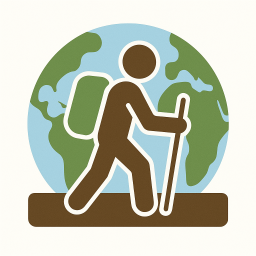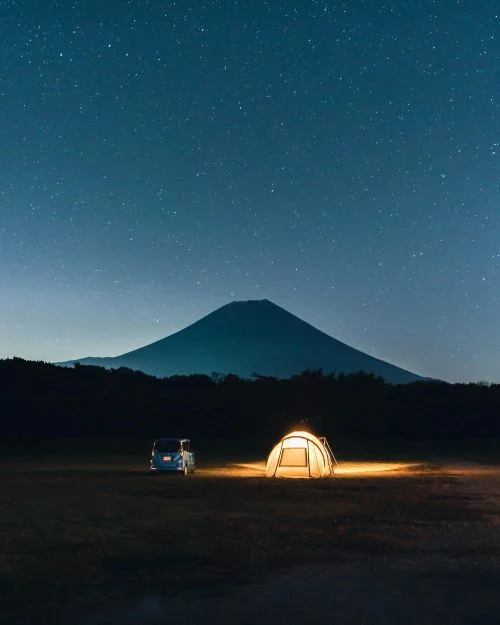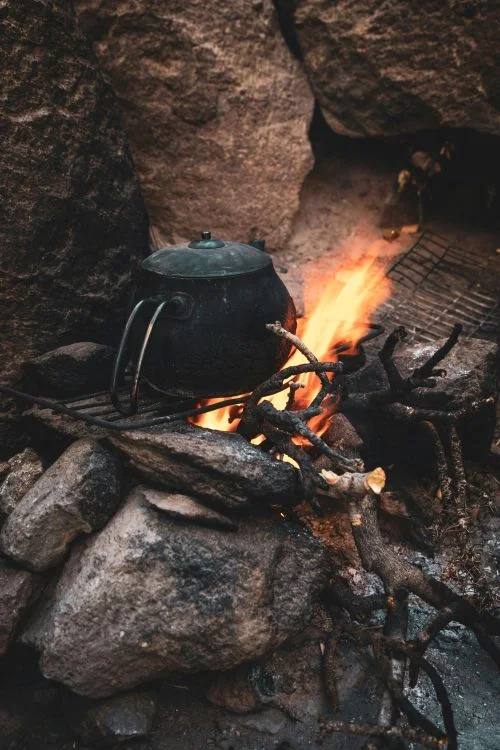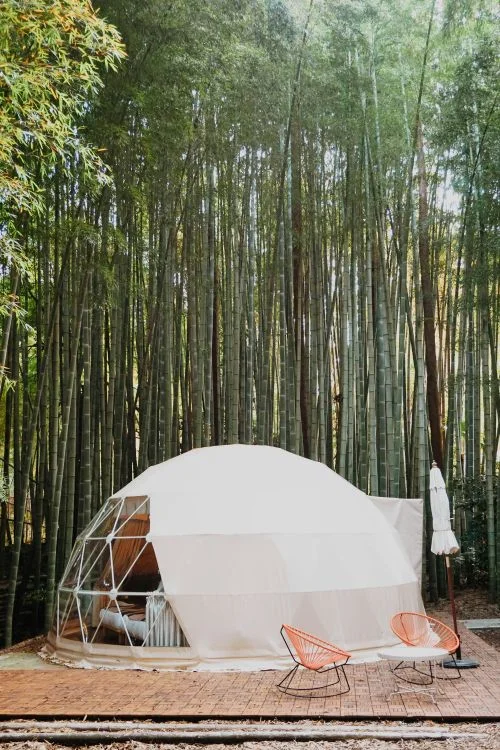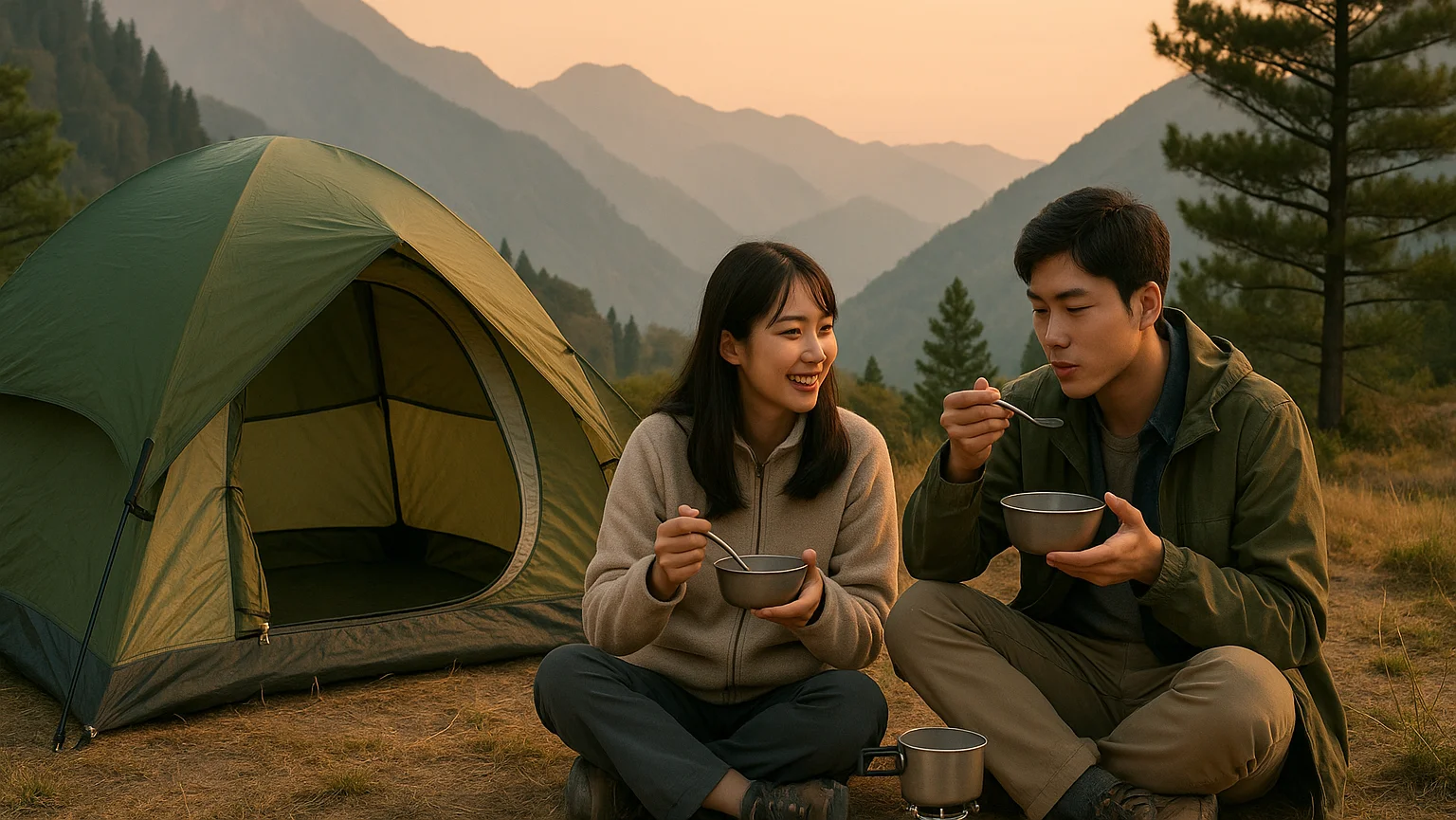
Wild Camping in Japan: legal spots and regulations
After explaining the rules for bivouacking in France in a previous article : https://hike-planet.com/en/post/bivouac-legal-en-france-ou-et-comment-dormir-dehors let’s now explore other destinations, starting with Japan.
Japan, a mountainous and forested archipelago with more than 70% of its land covered in woods, is a true paradise for nature lovers. Between majestic volcanoes, cedar forests, crystal-clear rivers, and ancient hiking trails, the country offers endless opportunities for outdoor immersion. However, for the foreign hiker eager to spend a night under the stars, one essential question quickly arises: where can you legally bivouac in Japan?
Unlike some parts of Europe, where wild camping laws are clearly defined, Japan’s regulations are more diffuse, often depending on local rules, national park policies, and, above all, the good sense of hikers.
Understanding Japan’s Bivouac Culture
Japan has a long-standing tradition of harmony between humans and nature. This philosophy, rooted in shintoïsm (https://en.wikipedia.org/wiki/Shinto) an buddhism (https://en.wikipedia.org/wiki/Buddhism), emphasizes respect for the environment and discretion in behavior.
Wild camping is not a common practice, especially outside designated areas. Japanese campers usually prefer official campsites, which are well-maintained, clean, and often located in stunning natural settings, by a lake, at the foot of a volcano, or along the coast.
These campsites are called「キャンプ場」(camp-jō) and can be free or paid depending on the region.
For long-distance hikers crossing mountain ranges or remote islands, however, pitching a tent is sometimes the only way to sleep outdoors. This is where the idea of discreet bivouacking comes in, tolerated in certain natural areas as long as strict rules are followed.
Japanese Law on Wild Camping
Japan does not have a national law that explicitly bans wild camping or bivouacking. The legal framework varies depending on whether the land is privately owned, public, or managed by prefectural authorities.
In theory, pitching your tent on private property without permission is considered trespassing.
On public land — especially within national parks (国立公園) — bivouacking is usually regulated. These areas are managed by the Ministry of Environment (環境省 : https://www.env.go.jp/) and each park has its own specific rules.
In most cases:
- Bivouacking is only allowed in designated areas, often near mountain huts or rest zones.
- Open fires are strictly prohibited except in designated fire pits.
- Long-term camping (more than one night in the same spot) is forbidden.
- Tents should be set up after sunset and taken down at sunrise to minimize visual impact.
Failure to comply with these rules can result in a fine or even police intervention, particularly in cases of environmental damage or complaints from landowners.
Areas Where Bivouacking Is Tolerated
Certain mountainous regions in Japan allow discreet bivouacking if hikers act respectfully toward nature and others. Here are a few examples:
The Japanese Alps (Nagano, Toyama, Gifu)
In both the Northern and Southern Alps, hikers can pitch their tents near mountain huts (山小屋, yama-goya).
Many huts have designated tent areas (テント場, tento-ba), where a small fee (around ¥1,000–¥2,000 per night) is required.
This is the safest and most regulation-friendly option. You’ll find such campsites in areas like Kamikōchi, Yarigatake, and Mount Hotaka.
Regional Natural Parks
Some lesser-known parks, such as those in Hokkaidō (Daisetsuzan, Shiretoko) and Kyūshū (Aso-Kuju, Kirishima), tolerate bivouacking in remote zones — as long as there are no “no camping” signs and the environmental impact is minimal.
Remote Islands
In archipelagos like the Izu and Ogasawara Islands, bivouacking is sometimes permitted on certain beaches, often with prior approval from the local town hall.
Autonomy is key: you must bring your own water and food and carry all your waste back with you.
Where Bivouacking Is Strictly Forbidden
On the other hand, some areas in Japan strictly prohibit wild camping, for ecological or safety reasons:
- Urban and densely populated coastal areas (Tokyo, Osaka, Kanagawa): bivouacking in public parks or on beaches near residential zones is not allowed.
- Shinto and Buddhist temples or shrines: sacred sites where camping is considered disrespectful.
- Protected zones like Yakushima (UNESCO-listed) and the Mount Fuji summit, where over-tourism has led to strict restrictions.
Alternatives: Mountain Huts and Official Campgrounds
For hikers looking for more comfort or to avoid legal ambiguity, Japan offers various accommodation options in the mountains:
- Mountain huts – Dormitory-style lodging, often with meals included. Reservations recommended.
- Official campsites – Typically located in valleys or near lakes, offering bathrooms, showers, and sometimes even Wi-Fi.
- “Free campsites” (無料キャンプ場) – Found in rural prefectures such as Hokkaidō, Nagano, and Kōchi. These free sites are ideal for budget travelers.
A great starting point for finding them is the Japanese website キャンプ場ナビ (https://japancamp.jp).
